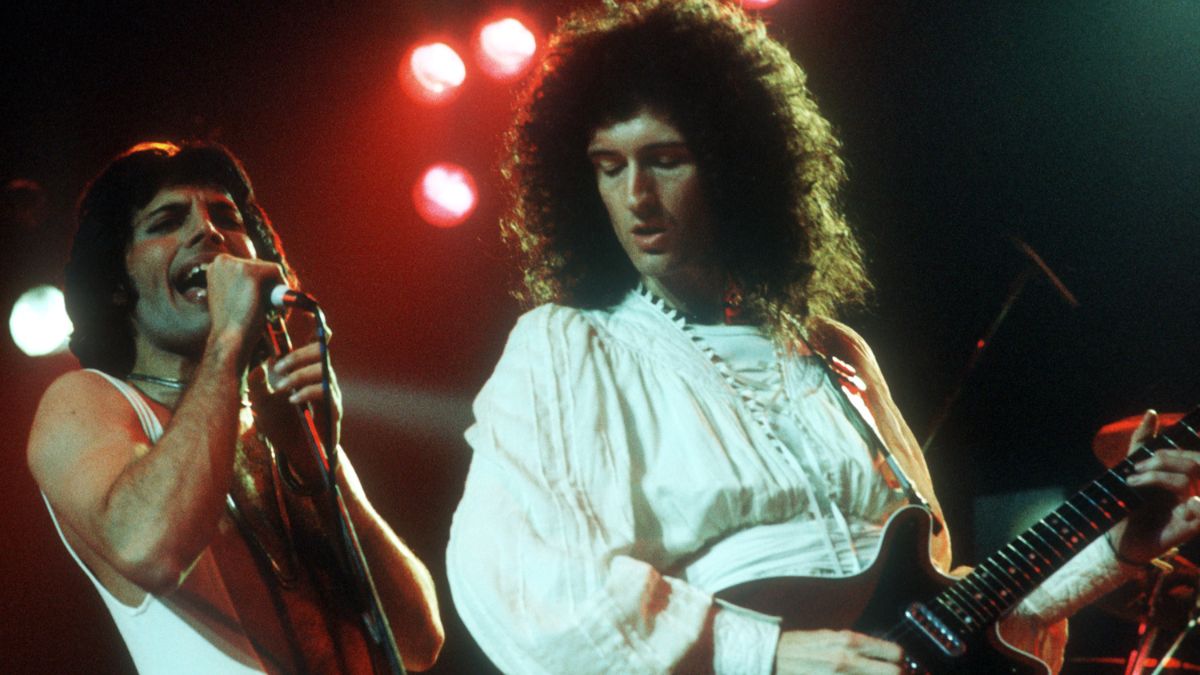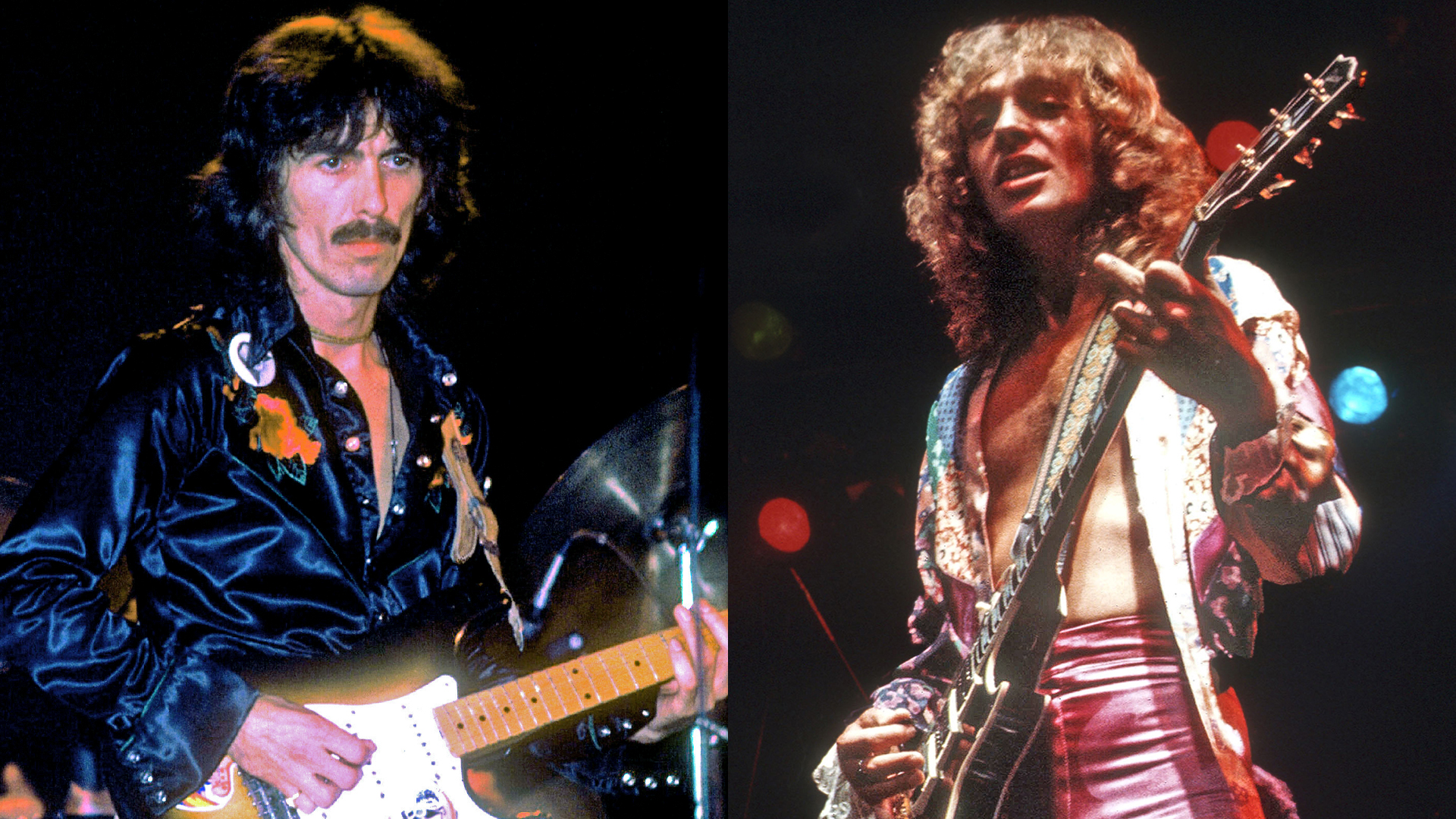“It’s a bit mad, but it’s got everything in it” Brian May says Queen's biggest hit seemed like nothing out of the ordinary to him — until the fans went crazy for it
The flamboyant epic would become Queen's biggest hit, but May didn’t see it as being a standout in the band's canon

Sometimes, public opinion elevates a song far beyond what its writers ever imagined. Scott Gorham admits he never saw Thin Lizzy's “The Boys Are Back in Town” as a single until American DJs put it on heavy rotation, and it spread like wildfire.
Similarly, Brian May has told Classic Rock he didn’t initially think “Bohemian Rhapsody” was anything extraordinary. But the public clearly had other ideas.
“People have such a hard time understanding how unsurprising ‘Bohemian Rhapsody’ was to us,” May says. “If you look at the first album, you’ve got ‘My Fairy King,’ which is very complex and goes all over the place.”
“Bohemian Rhapsody,” a mock opera penned by singer Freddie Mercury as a way of mashing three song ideas into one, was a quintessential Queen track. It didn’t stray from what the group had done on their first three albums.
May also points to “March of the Black Queen” from 1974’s Queen II as further evidence, noting that it is “way more complicated” than Mercury’s mock opera.
“So ‘Bohemian Rhapsody’ wasn’t a surprise to us,” he says. “It was just, ‘We’ll do another one of these things.’”
The difference, he thinks, is down to producer Roy Thomas Baker, who took Mercury’s vision to the next level.
All the latest guitar news, interviews, lessons, reviews, deals and more, direct to your inbox!
“We were going out to dinner one night, and I met Freddie at his apartment in Kensington,” Baker told Sound on Sound in 1995. “He sat down at his piano and said, ‘I'd like to play you a song that I'm working on at the moment.’ He played a bit and then stopped suddenly, saying, ‘This is where the opera section comes in.’ We both just burst out laughing.

“I had worked with the D'Oyly Carte Opera Company at Decca, where I learned a lot about vocals and the way vocals are stressed, so I was probably one of the few people in the whole world who knew exactly what he was talking about.”
Soon the rest of the band were onboard.
“As we were constructing the opera bit, we were getting more and more wild,” says drummer Roger Taylor, speaking to CR alongside May. “‘Stick a bit more on, stick another bit in, it’ll all be fine when it gets to the heavy section.’ And it was.
“We were planting our flag in the ground: ‘This is really us — it’s a bit mad but it’s got everything in it,’” he continues.
The fact that it was written on a piano, rather than an electric guitar, presented some big challenges for May. Half a century after its release, the song still humbles him.
It’s the most unnatural riff to play you could possibly imagine
Brian May
“It’s the most unnatural riff to play you could possibly imagine. It’s not a riff that a guitarist would naturally play, and that’s a double-edged sword,” he told Total Guitar last year.
“To be honest, I still don’t find it easy! I can play it at home okay, but in the heat of the battle, when we’re playing it live, and there’s huge adrenaline, it’s the climax of the show, and that riff comes along, it’s not the easiest thing to play.”
May has also likened part of the song's magic to the Beatles.
In related news, May revealed in September that Queen have been in the studio. Although he says his touring days are behind him since he suffered a stroke last year, he performed with his Red Special guitar in a surprise performance with Benson Boone at Coachella, and he notes Queen are "very keen" to play a residency at the Las Vegas Sphere. .
Earlier this year, he released his first-ever signature guitar, a Gibson SJ-200 embossed with a touching tribute to the late Mercury.
A freelance writer with a penchant for music that gets weird, Phil is a regular contributor to Prog, Guitar World, and Total Guitar magazines and is especially keen on shining a light on unknown artists. Outside of the journalism realm, you can find him writing angular riffs in progressive metal band, Prognosis, in which he slings an 8-string Strandberg Boden Original, churning that low string through a variety of tunings. He's also a published author and is currently penning his debut novel which chucks fantasy, mythology and humanity into a great big melting pot.

